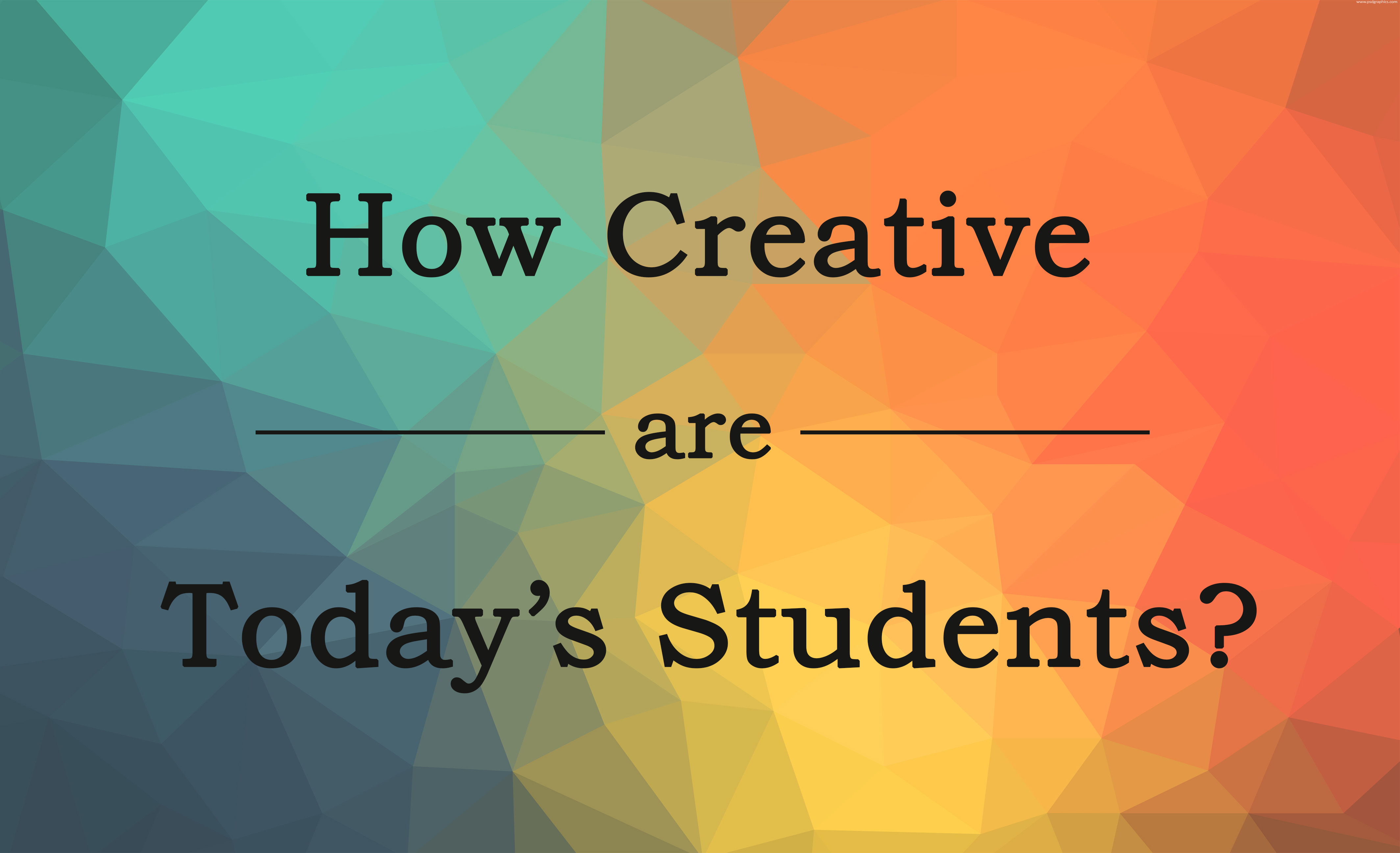The current The Chronicle of Higher Education (22 August 2014), the so-called annual almanac issue, contains in interesting item under “A Profile of Freshmen at 4-Year Colleges, Fall 2013” (36). In a self-assessment survey, three-quarters of these students rated their own academic ability in the highest 10% or above average, but what struck us was a specific category in which 54% evaluated themselves as in the highest 10% or above average, creativity (we’re also struck by the breadth of a survey that lumps together “highest 10%” with “above average”).
Really? We’ve always gotten a good chuckle out of the stat we saw that 90% of all faculty consider themselves in the top 10% of all instructors, but the Lake Wobegon Effect seems to be more pervasive than we once thought. Are we really to believe that over half of the current crop of first-year students is that good?
Why are we so skeptical about these self-evaluators? In our Introduction to Applied Creative Thinking (2012) we cite Sir Ken Robinson and his report that “at age 5 a child’s potential for creativity is 98%, but by adulthood that potential had gone like a runaway elevator to 2%” (14). If Robinson is right, how are the Chronicle’s self-evaluators defying the odds?
Second, the research on self-evaluation suggests that students have an over-inflated view of their abilities. In Academically Adrift (2011), Arum and Rotska make two relevant points: “If students cannot identify or define learning and critical thinking skills, how will they know whether they have obtained them? Self-reported assessments are also well known to be susceptible to inflated perceptions of one’s own performance” (27). Previous studies, for instance, have found exaggerated self-assessment in everything from one’s driving ability to actual work production. (Tweet this quote.)
On the other hand, we wouldn’t have developed a minor in Applied Creative Thinking if we didn’t believe that today’s students have the potential to become creative. We just argue that the students have a lot further to go than they think. Their positive attitude toward their ability to think creatively is beneficial to developing their creativity, but just as important is a realistic assessment of one’s skills.
Perhaps we should take a cue from HGTV’s popular Property Brothers, wherein the host siblings always begin their dealings with prospective house-buyers by first showing these novices a house that meets all of their wishes except one, the price. By initially providing a reality check, the Brothers can then convince the house-buyers of the need to rehab a fixer-upper.
The first step in solving a problem is to admit you have one. Perhaps these self-assessors need such a reality check before the next survey.
Author
 Charlie Sweet is currently Co-Director of the Teaching & Learning Center (2007+) at Eastern Kentucky University. Before going over to the dark side of administration, for 37 years he taught American Lit and Creative Writing in EKU’s Department of English & Theatre, where he also served as chair (2003-2006). Collabo-writing with Hal Blythe, he has published well over 1000 items, including 15 books; of his 11 books with New Forums. Meet Charlie.
Charlie Sweet is currently Co-Director of the Teaching & Learning Center (2007+) at Eastern Kentucky University. Before going over to the dark side of administration, for 37 years he taught American Lit and Creative Writing in EKU’s Department of English & Theatre, where he also served as chair (2003-2006). Collabo-writing with Hal Blythe, he has published well over 1000 items, including 15 books; of his 11 books with New Forums. Meet Charlie.



